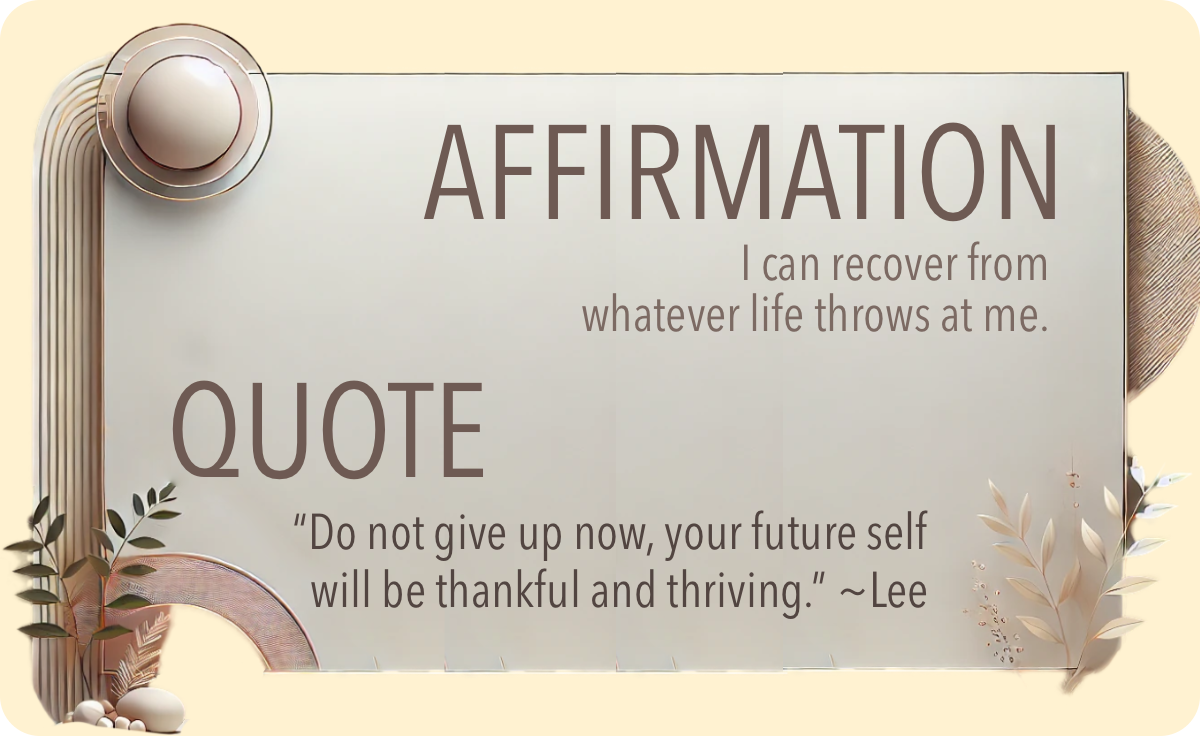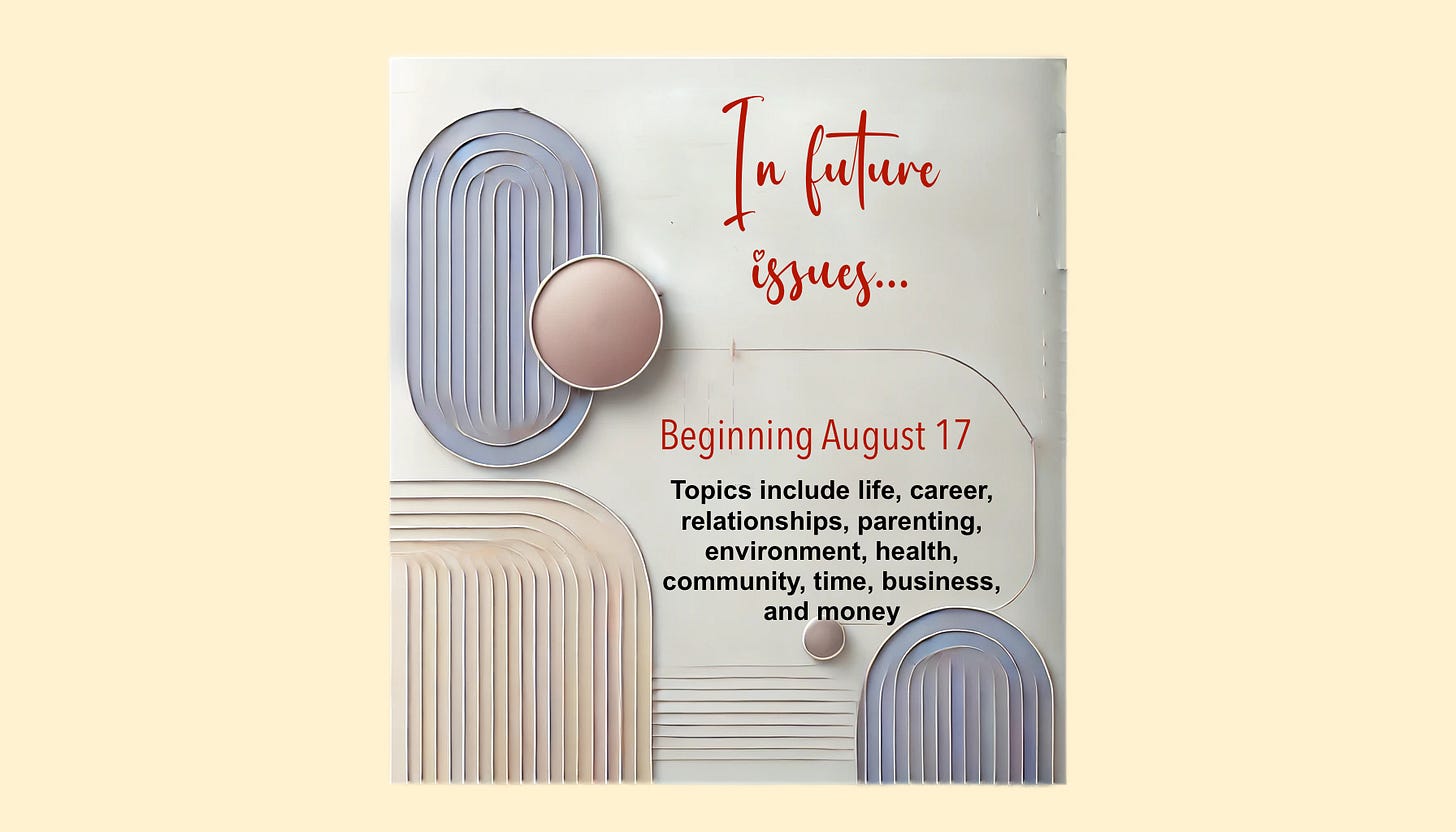Your Proven Guide To Successful Body and Mind Recovery
Empowerment Through Recovery | Recovery for The Body And Mind | One Woman’s Secret to Staying Sober | The first step is to admit that you're in recovery now from some event or circumstance | Tips
Volume 1 Issue 11
Editorial by DR Rawson - The Possibilist
Recovery. There are many forms. We often refer to the main components: Mind, Body, and spirit. However, we commonly refer to them as grief, loss, and change. The areas recovery is most often dealt with are personal, forgiveness, relationship, work, and spirituality. We should all be familiar with the concept and the process. However, It’s different for everyone (we think). It’s not.
With our new emphasis on Personal Empowerment, this is the first of many issues to deal with all facets of empowerment. We hope you’ll subscribe and not miss a single issue. In this issue, we’ve invited Jim Boylan, a regular contributor to Dancing Elephants Press on Medium, to address this issue. I consider Jim an expert in the field of change. Please take the time to read his very common-sense approach to recovery, any type of recovery, and I think you’ll agree.
Empowerment Through Recovery
By Dr. Gabriella Kőrösi
In the daylight, it might all seem normal. People are walking the streets, going to work, picking up groceries, and going to school. Walking through a street or a park many people might not notice the signs as you approach someone that they are having a hard time. I had seen the signs many times. As a nurse, I have seen it over and over again. The way the clothing is arranged, the smell, the shakes, or the way the face and the eyes look. There is a sense of desperation and hopelessness coming from the person addicted to substances. I have seen the slips and I have seen the recovery as well.
The mind is a very powerful machine. Addiction to any substance can “hijack” the power of the mind creating a false image of what the person needs. It is a very difficult loop to get out of once someone is addicted to drugs, alcohol, gambling, and nicotine for example.
Many times people have to hit an all-time “low” something that wakes them up in shock to realize they can not go on like this anymore. People are able to come out of the circle of addiction by realizing the power that lies within them. Through empowerment and hard work step by step people can succeed and live amazing lives. I have seen many people turn their lives around and help other people who are currently suffering from addiction better their lives.
The human mind has an amazing power to heal and recover. Even after years of use and abuse the mind can heal and people learn the power within themselves. Each step toward recovery brings more light and hope into the individual’s life. I have heard some amazing stories of recovery and success throughout my career. I am very grateful for all the stories and the people who were able to stop using substances and become pillars of their communities supporting others.
One of those people is James Boyan. He tells his story about recovery below. I admire James for his writing about recovery and helping people who are less fortunate than him.
Recovery For The Body And Mind
For any problem that you have by James Boylan
The word recovery only has eight letters. But it has meanings numbering much more.
What do you think of when you hear the word recovery? Many think of substance abuse when the word is mentioned. With drug and alcohol abuse skyrocketing, this is easy to understand. Some people are devastated by the loss of a loved one while others are flattened by poverty. Loss of a job. Failed exam in school. The victim of a crime. Loss of home or shelter. Markets crash and take your bank account along.
What do you call the times following any of these events? Right! These times are also called recovery.
The road to recovery is sometimes rough but the results are beautiful!
I have got good news for you! Everyone has times in their life when they are in a position where they need some recovery. This is important to but not limited to alcoholics and addicts. Let your imagination run wild and see what you come up with. You will have a choice if you lose someone or something that means something to you. You would probably choose recovery. What is the alternative? Seemingly never-ending despair.
Whenever you lose someone or something that you are close to, you experience grief in varying degrees. Elisabeth Kubler-Ross has published the results of studies showing that there are 5 stages of grief when suffering a significant loss.
These stages are denial, anger, bargaining, depression, and acceptance. They usually occur in this order, but not always. They all do occur, though. They all have one thing in common. That is the person’s thinking. These phases all occur, if you choose recovery over despair, you recover in ways that are similar, no matter what it was that you lost. What can you do to effectively handle these stages?
Remembering the fact that you are a Spiritual Being having a Human Experience, you can begin by accepting the fact that they will occur. Then, because they are no longer a surprise, deal with them as they arise.
Dealing with them is simple but not always easy.
Next, realize that, since this has happened to many others in similar circumstances and they effectively dealt with it, you can and will too. You are not alone in your thinking. You are not alone in your anger. You are not alone in your depression. You are not alone in your denial. You are not the only one who has tried to bargain with God over similar circumstances. The light at the end of the tunnel is that, since you are not alone with any of this, you will also not be denied the acceptance that follows this bumpy path.
Did you ever wonder what the 12 Step Recovery Groups have in common and so are very successful? Let’s take the AA 12 Steps of Recovery. ONLY the first half of the first step mentions anything at all about alcohol. ALL the rest are about changing your thinking. Wow! That is something to think about, change your thinking, change your life? Simple and not always easy. The results are so worth it!
If changing the thinking of a practicing alcoholic can make a happy, productive person out of a former drunk, why couldn’t it also do the same for others who suffer from significant losses, too?
Can’t control your drinking? Living in poverty and wanting to get out? Fired from your job? Bank account shrunk because of outside happenings? Spouse walked out? Change your thinking, change your life.
Change your thinking, change your life image by James Boylan and Bing Copilot
How do you change your thinking? A suggestion is simply saying “God, help me,” and then stepping aside and letting Him. I suggest using the last 11 1/2 steps of AA, NA, OA, or one of the other 12-step recovery programs. They have changed the thinking hence the lives of millions of others. Others just like you and me.
What is the answer to the subject of the title of this article? Who should look at recovery? Everyone could profit from doing this. How? Just substitute your problem for the word alcohol in the 1st Step of AA. It would then read “We admitted that we were powerless over (poverty, loss of loved one, job, etc.)” Now, all you do is work your way through the remaining 11 1/2 steps and you will have improved your thinking and life!
Relationship Recovery
Empower yourself no matter your intimate relationship status by Libby Shively McAvoy
Empower yourself to build your self-esteem and find interdependence no matter your intimate relationship status because it will improve your relationships with intimate partners, friends, family, and co-workers.
Recovering From Breakups
If you have experienced a recent breakup or divorce, focus on getting to know yourself again, healing, practicing good self-care, and trying new hobbies. Engaging in hobbies is a great way to build self-esteem and raise your spirit.
Recovering From Codependency
Do you bend over backward to please your partner? Maybe you feel responsible for their mood. If so, you may be codependent. Learning to be interdependent is healthy. You can do so by setting boundaries, engaging in individual hobbies and activities, and respectfully letting your partner know your needs and desires.
Recovering From Financial Strain
If you are a couple suffering from a financial setback, it is essential to work together to solve problems. Sit together and set a reasonable budget. Keep the romance alive with affordable dates such as outdoor adventures, nature walks, picnics, indoor or outdoor movies, stargazing, or painting.
Final Thoughts
Being newly single can be empowering as you learn more about attributes and strengths you did not realize you had. Problem-solving in relationships, resolving conflicts, and recovering from setbacks empower relationships to thrive.
One Woman’s Secret to Staying Sober
by Phillis Haynes
Jane Fox has been sober for almost 40 years. She is very open about the challenges of staying sober and has written a book offering her story and her solutions. These are excerpts from my interview with Jane Fox the author of The Hungry Mother: Recipes for Recovery and Life in the Kitchen She shares her journey and tools for staying sober. Avoiding relapse, finding pleasure, and discovering your recipes for life. Phyllis: One of the things that you said that I found fascinating was the challenge of finding healthy pleasures and that if they weren't sufficient something would happen. Jane: You can't go through life just being sober without any of these things. And for me, cooking was part of that wonderful life. I enjoy this. I must be a good cook. The idea is once you get sober… I've been sober for almost 40 years. At some point, you are no longer an ex-addict. You're a regular person and you have to fill your life up with joy and people and what normal people do, that brings pleasure and connection into your life. It is a real saving grace. It builds up your ego. It builds up your confidence. That's what life is about. Now that you're sober, enjoy it, revel in it, and find things that you enjoyed before you started using drugs, I didn't have any hobbies and passions. Phyllis: Ah you had to discover them. Jane: Once you get sober, let the real person come through and develop all those things that you always enjoyed or always wanted to try. Phyllis: In your book, you talk about the high. You talk about the high that you had selling drugs that fell into your life. Jane: The challenge of becoming an addict and needing to make money and getting into the lifestyle of, I can't even call it a lifestyle, it's a death style, really, of selling drugs. Phyllis: How can healthy pleasures even compare with that life that you lived? Jane: Well, you know, there was always an element of danger that really, if you value your life. You're not going to take those kinds of risks that put you at risk of losing all, you know, losing your freedom or your life. The point is whatever thrill I got from drugs was hanging out with all those people. Just keep in mind, that this was also in the seventies and the eighties. Not so much the 80s, but there was a culture behind it. It wasn't the street horror that you see now. Phyllis: So how did you begin to pull yourself out of that lifestyle? Jane: I took up sailing. I always wanted to sail. I shouldn't have bought a sailboat. I was a single parent, but that sailboat saved me. It saved me because you go out on that boat, no matter what was bothering you before, you have to leave that on land and focus on getting home in one piece. It was a pretty good vehicle for me. Phyllis: Ah, so that answers the question for me because you know your book was highly recommended to me but,I'm one of those people who hates to cook. I love serving a beautiful plate and having a lovely table, but the process of shopping and preparing and cooking for me is awful. Your book helped me through it. Your book gave me some insight into what's good about cooking. Jane: Yes, I call it culinary meditation. When I multitask and decide I'm going to make a recipe, I have to focus on that. I have to clear the decks emotionally. I start planning, well, maybe I'll make it this way or I'll make it that way. When I'm in an awkward spot, if I'm feeling a lot of emotions, or even in early sobriety, when you might still be contemplating using, there's something about the process of chopping and peeling and cleaning. You know, those steps can really ground you and free you from anxiety. Despite it all, you get through that bad moment and you made something really good too that people liked and that you liked and you enjoyed. Phyllis: You have another important experience in your book that I think will help many people and that is you did not always stay sober from the first time you tried. You fell back. Talk about what caused you to fall back into using and how you got out of it. Jane: Yes. I got sober in 1976 and I was sober for 15 years. I had a great career. I got married, I had children. I was very lucky. I lived in Manhattan and when I was still living in rehab I got a job at an ad agency. In rehab, you're not allowed to make phone calls. You have no privileges. And this agency, there was a phone on my desk and I was so excited. I went to work early every day. I stayed late every day. I felt like a real person. I had a really good 15 years and then my marriage imploded. I found out I was pregnant with our second child when I found out my husband was not faithful. He was, very seriously involved with other women. So when that fell apart, I had an infant and a toddler, and also I had been very involved in a business. We owned a rehab in Manhattan and I was the spokesperson. I did their marketing. It was a mom-and-pop business and all of a sudden that was off-limits to me. I wasn't allowed to work there and my whole world came crashing down. I started with a sleeping medication. I found a psychiatrist. I was not honest with him. I did not tell him my history. And it started off: “Oh, you're divorced. You're having trauma. Oh, here's a pill to go to sleep, or here's a pill to calm your anxiety.” before you know it, one pill for me turns into two. If you've been an addict, your tolerance It's like a snapshot from the last time that you did drugs. It's not, I don't have the normal tolerance of someone who's been clean all their lives. It takes a lot for me to feel the effects of medication. I wasn't so bad for about two years. Then the third, second, or third year. I got really bad bronchitis and discovered codeine cough syrup. Back in the nineties, it was still handwritten prescriptions. I forged prescriptions all over wherever I could. I was addicted to codeine cough syrup for two years. Phyllis: How did you snap yourself back into sobriety the next time? Jane: I was having trouble with my divorce and I went to see an attorney and thank God he was in a 12 Step program and he took one look at me. “Lady, I can't help you unless you get sober first.“ I was mortified. “Oh, you mean you can tell?” I thought I had it so well hidden. I had to tell my parents. I was terrified that I would lose custody of my children. I mean, this is a big deal. If my spouse found out that I had substance abuse issues, custody would become threatened and that scared the daylights out of me. I found a fantastic doctor, the best addiction psychiatrist in New York City. Dr. Mark Gallanter the head of addiction studies at NYU Langone. I saw him three or four times a week for like three times a week for six months and then twice a week for another six months and then once a week for another year and he really straightened me out. You had to straighten yourself out too. I mean this had to be, in addition to his help, I had to decide once and for all to be sober. Author’s note: I appreciate the humility and vulnerability shared in this interview. Watch the full interview here. Jane Fox Discusses Addiction and Recovery on Profonde TV
Gabriella - Take time to empower your mind by learning about yourself. Enjoy the moment we are in; seek no more or less.
Libby - Being single and finding your independence is extremely empowering, and so is resolving conflict and working together as a couple.
DR - The line between here and there is what you make it. Deciding to grow and empower yourself personally will absolutely lengthen the line. The result will be more than worth the effort. Hack- “Don’t let your past hold your future self hostage.”
Gabby - Accepting help is the first step we need to take. Then we must be prepared to heal our inner selves from inherited intergenerational traumas.
Thanks for reading,
Dr. Gabriella Kőrösi, Founder
Dancing Elephants Press is a reader-supported publication. To receive new posts and support our work, please consider becoming a free or paid subscriber.
P.S.
If you have been looking for an inexpensive yet thoughtful gift for someone you share knowledge with, consider gifting a subscription to Dancing Elephants Press on Substack, a weekly magazine that will improve the quality of their life.


















We loved this story reflecting on holistic health principles. Thank you for sharing it.
Thank you for this valuable resource. I am a fan of your work here. Keep up the fantastic work to illuminate society with your insights.